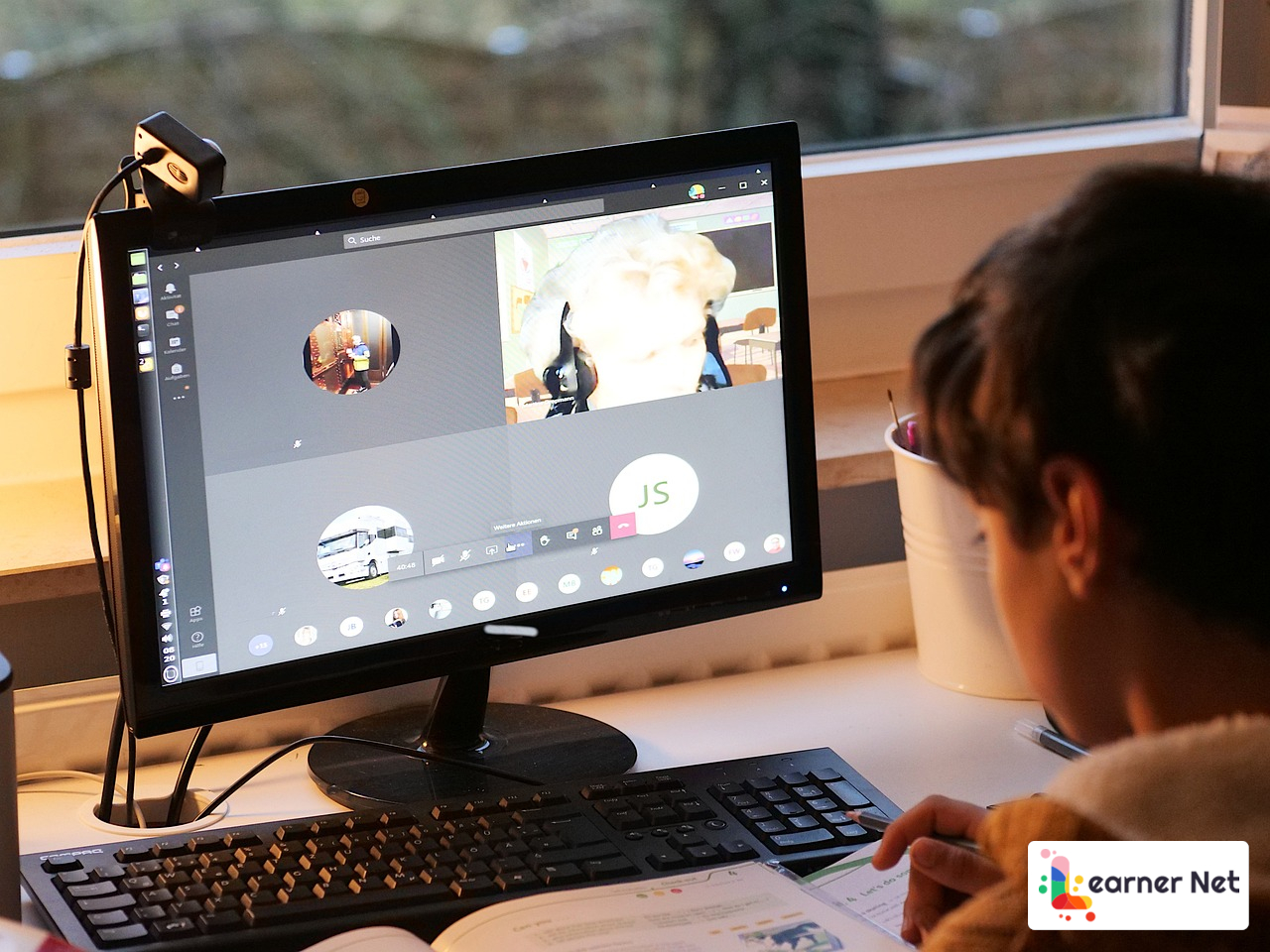The increasing trend of online tutoring has brought about a transformative shift in the way education is approached and delivered globally. This has been further enhanced by the increase in home-schooling and the desire of many students to have a better cultural understanding of the world, not just their local neighborhoods as is so often the case in the traditional classroom and localized school setting.
As students seek personalized learning experiences, the demand for international tutors has risen substantially. In this context, the significance of cross-cultural learning cannot be overstated. International online tutors often find themselves navigating diverse cultural backgrounds, bringing both opportunities and challenges to the virtual classroom.
Cross-cultural learning is significant in international tutoring as it fosters a more inclusive and enriching educational experience. Students from different cultural backgrounds bring unique perspectives, values, and ways of learning. Recognizing and understanding these cultural nuances is crucial for creating an effective and respectful teaching (and learning) environment.
For international online tutors looking to navigate the challenges of cross-cultural learning successfully, several key tips can be invaluable and should be heeded, not only out of respect for the cultural heritage, but to ensure a positive interaction and learning experience for the online students.
Prioritize cultural sensitivity by avoiding stereotypes and assumptions. Encourage open dialogue and feedback to foster communication and understanding.
Utilize technology and online learning resources to overcome language barriers and facilitate efficient communication.
Adapting teaching methods to accommodate diverse learning styles is essential. Recognize the importance of tailoring lessons to align with various cultural backgrounds, incorporating examples and references that resonate with students globally.
Building cultural awareness within the virtual classroom creates an inclusive space where students feel comfortable sharing their cultural experiences.
Navigating time zone challenges is a necessary aspect of cross-cultural learning. International tutors should explore scheduling tools and offer flexible time slots to accommodate learners from different regions.
Encouraging peer collaboration among online students from diverse backgrounds promotes a supportive online community and a better cross-cultural understanding for the students.
International tutors online play a pivotal role in shaping the future of cross-cultural learning. By embracing cultural sensitivity, adapting teaching methods, and leveraging technology, tutors can create a global classroom that fosters mutual respect, understanding, and successful cross-cultural learning experiences.
Diagram 1: Strategies for Successful Cross-Cultural Learning: A Visual Guide for International Tutors

Develop An Understanding Of Cultural Sensitivity
Cultural sensitivity is a cornerstone for international online tutors aiming to create a positive and inclusive tutoring environment. Developing a better and more comprehensive understanding of cultural sensitivity is not only beneficial for tutors themselves but also crucial for nurturing a conducive learning atmosphere for their students.
Emphasizing the importance of cultural sensitivity in the tutoring relationship is the first step. Tutors should recognize that each student comes from a unique cultural background, influencing their values, communication styles, and learning preferences.
Acknowledging this diversity is one of the first keys to fostering an environment where students feel understood and respected.
Recognizing and respecting cultural nuances is an essential aspect of cultivating cultural sensitivity. Tutors should familiarize themselves with the cultural intricacies that may impact the learning experience. This includes understanding cultural norms regarding communication, academic expectations, and the role of authority figures in education.
By appreciating these nuances, international online tutors can tailor their approach to better suit the cultural context of each student individually.
Avoiding stereotypes and assumptions is imperative in the pursuit of cultural sensitivity. Tutors should approach each student as an individual, avoiding preconceived notions based on cultural stereotypes. Recognizing the diversity within cultural groups and treating each student as a unique learner helps dispel biases and creates a more inclusive learning environment.
To enhance cultural sensitivity, international online tutors can actively seek cultural competency training, engage in cross-cultural discussions, and continuously educate themselves about the diverse backgrounds of their students. Cultivating cultural sensitivity not only enriches the tutoring experience but also fosters an atmosphere of mutual respect and understanding, laying the foundation for successful cross-cultural learning relationships.
Communication Strategies For International Tutors Online
Establishing effective communication strategies is another important aspect for online tutors to understand, especially when navigating a cross-cultural classroom, or with a more culturally diverse student base. The diverse backgrounds of students bring unique communication styles, linguistic variations, and cultural norms, making it essential for tutors to adopt strategies that foster clear and meaningful interaction to allow them to connect more personally with each student as an individual, and not as some comical or even tragic stereotypical archetype.
Effective communication in a cross-cultural context involves being mindful of language nuances, non-verbal cues, and cultural differences. Tutors should strive for clarity and simplicity in their communication, avoiding jargon, colloquialisms, vernacular, or idioms that may be challenging for students from different cultural backgrounds to understand. It is crucial to create an atmosphere where all students, regardless of their cultural origins, feel heard and respected.
Overcoming language barriers is a central aspect of effective communication both online and in face-to-face communications. Tutors should employ techniques such as using simple language, providing additional resources like glossaries, and encouraging students to ask questions or seek clarification.
Establishing a safe space for language exploration allows students to express themselves comfortably, fostering a positive and inclusive learning environment.
Encouraging open dialogue and feedback is another vital tool for engaging in effective communication. Tutors should create channels for students to express their thoughts, concerns, and cultural perspectives. By actively seeking feedback, tutors can adapt their teaching methods to better suit the needs of a diverse student body.
Utilizing technology and online resources enhances communication not only between tutors and students but also among students themselves in online peer groups. Video conferencing, discussion forums, and collaborative platforms facilitate a smoother, even seamless interaction even among students.
Tutors can create a virtual space where students can engage in cross-cultural exchanges, share experiences, and collaborate on projects, fostering a sense of community among the diverse student body.
Effective communication strategies for online tutors in a cross-cultural context involve clear, inclusive, and technologically facilitated communication. These strategies not only enhance the learning experience between tutors and students but also create a collaborative and culturally rich environment among the students themselves.
The Importance Of Tailoring Teaching Methods Online
The importance of tailoring online teaching methods is imperative as it directly influences the effectiveness of the learning experience for diverse groups of students. Recognizing diverse learning styles and preferences is am important step in creating an inclusive and engaging virtual classroom.
Each student possesses a unique learning style, whether visual, auditory, or kinesthetic. Acknowledging and accommodating these diverse learning styles allows online tutors to present information in ways that resonate most effectively with individual students. Visual learners benefit from charts, graphs, and diagrams, auditory learners prefer lectures and discussions, while kinesthetic learners thrive through hands-on activities and interactive exercises.
By recognizing these differences, online tutors can tailor their teaching methods to cater to the varied preferences within their student body.
Adapting teaching methods to accommodate various cultural backgrounds is equally crucial. Different cultures may prioritize specific approaches to learning, communication, and problem-solving. Online tutors should be mindful of these cultural nuances and be flexible in their teaching methods. This adaptability creates a more inclusive learning environment where students from diverse backgrounds feel represented and engaged.
Using a mix of visual, auditory, and kinesthetic approaches for online teaching enhances teacher-student interactions and overall engagement. A varied approach not only caters to different learning styles but also ensures that the material is presented in a comprehensive manner.
Incorporating multimedia resources, interactive discussions, and hands-on activities allows students to interact with the content in ways that align with their individual preferences, leading to a more effective and enjoyable learning experience.
Tailoring online teaching methods and recognizing the distinct needs of each student is essential for recognizing and embracing the diversity among your online students. By acknowledging diverse learning styles, adapting to various cultural backgrounds, and incorporating a mix of approaches, online tutors can create a dynamic and inclusive virtual learning environment that caters to the individual needs of each student.
How Online Tutors Can Build Cultural Awareness
Building cultural awareness is another key aspect of creating a positive and inclusive online learning environment. Online tutors play a crucial role in fostering a better understanding and acceptance of diversity among their students by implementing strategies that promote cultural awareness.
Encouraging students to share aspects of their cultural background is another foundational step in building cultural awareness. Tutors can create an open and welcoming space where students feel comfortable expressing their cultural identity. This can be achieved through icebreaker activities, discussion forums, or assignments that invite students to share their traditions, customs, and personal experiences not only with the tutor online, but with other students in peer and group activity forums and discussions.
By encouraging dialogue, tutors not only gain insights into the diverse backgrounds of their students but also foster a sense of community within the virtual classroom.
Incorporating culturally relevant examples and references in lessons is another effective way to build cultural awareness. In marketing this process is called “Localization and Globalization” but it remains relevant even in the world of online education. Tutors should strive to diversify their teaching materials by including examples and references that resonate with the varied cultural backgrounds of their students. This approach not only makes the content more relatable but also demonstrates an appreciation for the richness of cultural diversity.
This particular approach may also require an additional bit of research from the online instructors, though the surprise and reactions of the students when localized references are utilized in the materials, should be just as rewarding for most online tutors as discovering the knowledge for themselves.
Promoting a diverse and inclusive learning environment is essential for building cultural awareness. Tutors can actively select materials that represent a wide range of perspectives, voices, and cultural contexts. Assigning reading materials or projects that explore global issues from diverse viewpoints encourages students to broaden their understanding of different cultures. Additionally, fostering an atmosphere where every student’s voice is valued and respected contributes to a more inclusive learning environment.
International online tutors can build cultural awareness by encouraging students to share their cultural background, incorporating relevant examples and references in lessons, and promoting a diverse and inclusive learning environment. These practices not only enrich the educational experience but also contribute to a more accepting and globally minded virtual classroom.
Navigating Time Zone Challenges And International Scheduling Online
Navigating across multiple time zones poses a significant challenge for some international online tutors, but with strategic planning and the right tools, it can be effectively managed. One key consideration is to remember that while some online calendars automatically convert time zones, not all do, so vigilance in this aspect is crucial.
To manage scheduling conflicts across different time zones, international online tutors can utilize scheduling tools and applications designed to streamline the process. These tools often offer features that automatically convert meeting times to the local time zone of each participant, reducing the risk of confusion. Popular scheduling tools include Google Calendar, Doodle, and World Time Buddy, each offering functionalities that make coordination across time zones more seamless.
Offering flexible time slots is another valuable strategy for accommodating global learners. Recognizing that students may be located in various parts of the world, tutors can provide a range of available time slots for sessions. This flexibility allows students to choose times that align with their local schedules, minimizing the impact of time zone differences.
Additionally, international online tutors should establish clear communication regarding the schedule and time zone conversions. Providing students with a timetable that includes both the tutor’s local time and the student’s local time can help prevent misunderstandings and ensure that all parties are on the same page.
Successfully navigating multiple time zones as an international online tutor requires a combination of awareness, effective tools, and flexible scheduling. By utilizing online calendars with automatic time zone conversion, employing scheduling tools, and offering flexibility in time slots, tutors can successfully overcome most of the challenges posed by global time zone differences, ensuring a smooth and accommodating learning experience for their diverse student base.
Leveraging Technology And Online Learning Resources
Successfully leveraging technology and additional online learning resources can increase the flexibility and communications by international online tutors seeking to enhance the learning experience for their diverse student base and to encourage peer-group activities for added interaction.
Incorporating technology solutions takes the more limited learning experience beyond the basic virtual classroom setup, encompassing a range of tools and multimedia resources to create an engaging and effective educational environment.
To enhance the online tutoring experience, tutors can incorporate technology in various ways. Utilizing video conferencing platforms allows for face-to-face interactions, fostering a more personalized connection between tutors and students. This approach humanizes the online learning experience, making it more engaging and dynamic.
Multimedia resources and interactive tools play a crucial role in enriching the learning content and encouraging students to communicate with their peers. Tutors can integrate videos, podcasts, interactive quizzes, and virtual simulations to cater to diverse learning styles and maintain student engagement. These resources not only diversify the teaching methods but also make the learning experience more interactive and enjoyable.
Exploring and sharing virtual platforms that facilitate cross-cultural learning is an additional avenue for international online tutors. Platforms like Flipgrid, Edmodo, and Padlet offer collaborative spaces where students from different cultural backgrounds can share their perspectives, projects, and experiences.
These virtual platforms help to create a sense of community between students and peers, allowing students to connect with each other, above and beyond the confines of traditional teaching methods, the online classroom, and private chat rooms for the student and tutor alone. Each of these platforms is different, and built for different audiences, so it will be up to the tutor to determine which platforms are more directly related to and acceptable for their online students as a group.
By leveraging technology and exploring virtual platforms, international online tutors can create a dynamic and inclusive learning environment that transcends geographical boundaries, fostering cross-cultural connections among their students.
Encouraging Peer Collaboration Online
Encouraging peer collaboration between online students holds numerous benefits for both online tutors and learners alike, fostering a more dynamic and enriched virtual learning environment. Facilitating connections between students from different cultural backgrounds is a pivotal aspect of this collaborative approach, contributing to a more diverse and inclusive educational experience as well as a better appreciation for the cultural differences between the students.
Promoting collaborative learning experiences online enhances the overall engagement and understanding of the material. When students from various cultural backgrounds collaborate, they bring a wealth of perspectives, insights, and problem-solving approaches to the table. This not only broadens the collective knowledge base but also promotes critical thinking and cross-cultural understanding.
Creating a supportive online community is an essential component of encouraging peer collaboration. Tutors can establish forums, discussion boards, or collaborative projects that facilitate interactions among students. This helps build a sense of community and camaraderie within the virtual classroom, breaking down the barriers that might otherwise arise due to geographical distances.
For online tutors, the benefits of encouraging peer collaboration are manifold. It reduces the burden on individualized instruction, allowing students to learn from each other. Tutors can act as facilitators, guiding the collaborative process and providing additional insights when necessary. This collaborative approach also fosters a sense of responsibility and autonomy among students, as they take an active role in their learning journey.
Moreover, peer collaboration enhances cross-cultural communication skills, an invaluable asset in our interconnected world. Students learn to navigate cultural differences, appreciate diverse perspectives, and develop a global mindset. This not only contributes to academic success but also better prepares students for the realities of a culturally diverse professional landscape.
Encouraging peer collaboration among online students creates a dynamic, inclusive, and supportive learning community. It not only benefits the students by enriching their educational experience but also allows tutors to foster a more interactive and globally minded virtual classroom.
A Summary Of Assistance And Benefits For International Tutors Online
International tutors online bring a myriad of benefits to the virtual classroom, enriching the learning experience for students across the globe. Key tips for these tutors navigating cross-cultural learning involve recognizing and embracing the diversity among students, fostering cultural sensitivity, and adapting teaching methods to accommodate various cultural backgrounds.
Cultural sensitivity and adaptability are crucial attributes for international tutors. By acknowledging and respecting cultural nuances, tutors create an inclusive learning environment where students feel understood and valued. Emphasizing the importance of open dialogue and feedback allows tutors to continuously refine their approach, ensuring it aligns with the diverse perspectives within the virtual classroom.
Flexibility is paramount in the evolving landscape of online tutoring and education. Tutors should offer flexible time slots to accommodate global learners, recognizing the challenges posed by different time zones. Utilizing scheduling tools and applications aids in managing potential conflicts, ensuring a smooth and efficient learning experience for students worldwide.
Continuous learning is a cornerstone for international tutors seeking to thrive in the online education landscape. Staying informed about the latest technologies, educational methodologies, and cross-cultural communication strategies allows tutors to adapt their approach to meet the evolving needs of their students. Tutors can further enhance their skills by participating in cultural competency training and engaging in cross-cultural discussions.
International tutors online play a pivotal role in shaping a globally minded and inclusive virtual learning environment. The key lies in fostering cultural sensitivity, adapting teaching methods, and embracing flexibility. By embodying these qualities, international tutors contribute to the success and enrichment of students from diverse cultural backgrounds in the ever-evolving realm of online education.
The ability to work more closely with the online students, and the ability to encourage more peer-related activities by and between those students, all should work collectively to make the job of the international online tutor both easier and more effective. This should ultimately increase the ability of the online tutors to earn a good living working online, from home, or anywhere else for that matter, as well as providing a positive start to the lives of young students, and a better understanding of the larger world-view even for adult students online. It is challenging to think of many things that could be better than being well-paid while having such a positive impact on the world.








There are no reviews yet.